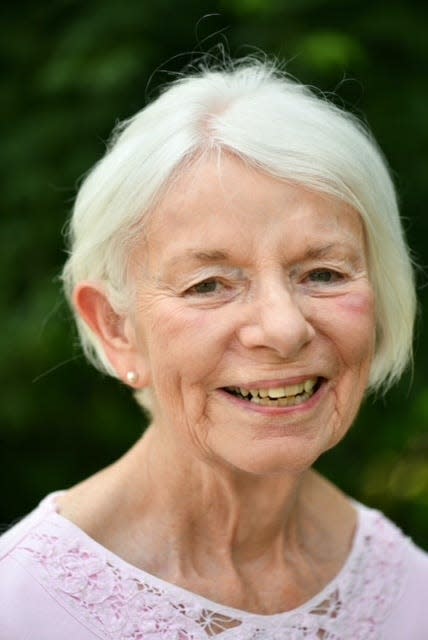Janet Ryan: Hope springs eternal
Warmer temperatures dominating the Midwest gave winter sports fans grief. Farmers are capitalizing on them and are now planting. Gardeners are also getting a head start. With 2023, as the hottest year ever recorded, we wonder if the early spring is due to El Nino or rising Earth temperatures. Climate concerns are growing.
Michiganders ask what the short winters and warmer temperatures mean for food production landscapes, gardens, and creatures of Earth. How will the lakes be affected? Why is the climate crisis now a climate emergency? Why is the technology that can mitigate some of the harm not being fully utilized? Why are governments and governing bodies so slow to act? Will the whole web of life unravel?

Amid springtime, Ramadan is calling devote Muslims to the 30-day fast from sunrise to sunset. Christians are observing Lenten practices in preparation for Easter Sunday. Later in April, the Jewish faith will celebrate the great feast of Passover. These faiths and other religious and indigenous traditions encourage reflection on the divine presence through the spring transformation of the whole web of life. Spring calls from us spiritual questions and yearnings. Rituals and traditions give meaning to life while urging us to have hope for the future.
These questions and yearnings run through the November 2023 Conference Of Partners (COP 28) Interfaith Statement presented by representatives of diverse world faiths and indigenous traditions who united in a commitment to address the climate emergency. They called for COP 28 to be a moment of truth where nations realign ambitions and outcomes so that humanity will flourish. This statement and others were backstories to this global Conference acknowledging fossil fuel emissions as the major cause of the crisis for the very first time. A moment of truth, a sign of hope, but not nearly enough.
A worry is that global carbon emissions are skyrocketing rather than decreasing. How will the world move away from fossil fuel when the gas and oil industries continue to drill endlessly, promoting this product while making trillions of dollars? They are unabashedly threatening the life of the planet. Does greed drive such actions? This is not hopeful.
Another less than encouraging sign is the opposition to the U.S. Environmental Protection Agency’s (EPA) ”good neighbor rule and plan” intended to restrict smoke stack emissions and decrease smog or sooty particles. Big business pushback led to the regulation being amended to gas-fired power plants being exempt from capturing carbon emissions, but coal-burning plants, which are decreasing rapidly, are being monitored. Gas-fired plants have emissions too and fewer should also be a goal.
The 1970s Clean Air Act soot pollution standards were developed so that all Americans would have better air quality and are focused on the polluted areas near industrial sites. This new 2023 Clean Air strategy has far-reaching global benefits including healthcare savings with less need for costly asthma and COPD care. Ten states have implemented this plan and are showing immediate significant nitric oxide emission level reductions. The 25 states bringing legal action against the plan have the Supreme Court weighing the validity of the ruling and the plan. Remaining hopeful is a challenge.
Globally and nationally increased use of electricity as a power source holds out hope of fewer emissions. Another hopeful sign is the US National Parks acknowledging the generation of 170,000 tons of carbon dioxide yearly and that they immediately are changing practices. Our Michigan Lake Superior parks' efforts to cut maintenance and service delivery emissions are due to this lake being severely threatened by climate warming. Diesel engines will be curtailed on Isle Royale; electric mowers, trimmers, and chainsaws will be used in Picture Rocks National Park. Solar power will be used in Keweenaw National Historical Park.
This fall, Americans will engage in another ritual of voting for elected officials. A vote for officials who understand the climate emergency and the urgency to make positive changes is a vote of hope for all creation.
— Sister Janet Ryan, IHM is a member of Stronger Together Huddle, a group engaged in supporting and promoting the common good of all. She resides in Monroe.
This article originally appeared on The Holland Sentinel: Janet Ryan: Hope springs eternal
